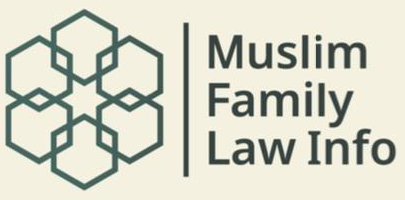Case Studies
We present a series of case studies based on the experiences of women who have contacted the MWNUK Helpline. These case studies offer real-life scenarios and highlight practical solutions to the complex issues faced by women, men and couples.
The names and scenarios have been altered to respect anonymity of individuals.
Polygamy
Bushrah’s Case
Keywords – visa status, spousal visa, domestic abuse, polygamy
Bushrah’s husband was previously married in the UK and obtained a civil divorce from his first wife. However, he never ended their nikah (Islamic marriage), and continues to live with her as husband and wife under that religious contract.
He later travelled abroad and legally married Bushrah, then brought her to the UK on a spouse visa. He now has two marriages, one legally recognised (as well as religious) and one religious-only.
Since arriving in the UK, Bushrah has experienced abuse from her husband. She feels trapped and vulnerable. If she reports him to the authorities, he could threaten to cancel her visa, leaving her and her young son without legal status or support.
Bushrah has no recourse to public funds, meaning she cannot access state benefits to support herself and her child unless her immigration status changes. She also struggles with language barriers and navigating the unfamiliar systems in the UK.
To end the marriage, Bushrah will need to apply for both an Islamic and a civil divorce. However, she cannot afford the legal fees or a solicitor to assist her through this complex process.
Her circumstances as a survivor of abuse, with a child, and limited financial and linguistic resources, make it extremely difficult for her to take the necessary steps on her own.
This case highlights:
- The risks faced by women in polygamous or overlapping marriage situations.
- How immigration status can be used to control and silence victims of abuse.
- The urgent need for accessible legal and support services for migrant women in abusive marriages, particularly those without access to public funds or legal representation.
Keywords – visa, domestic abuse, exploitation, polygamy, access to divorce
Samina was married abroad to a British citizen and would have been eligible to join him in the UK on a spousal visa once the application was approved. However, instead of waiting for the proper visa, her husband brought her to the UK on a visitor’s visa, wanting her to arrive sooner to help care for his elderly parents.
Once in the UK, Samina’s husband became physically and emotionally abusive. Eventually, she returned to her home country for her safety and wellbeing. Despite several years having passed since her return, she remains in a nikah contract with him, as no form of divorce – either civil or Islamic – has taken place.
Since leaving the UK, Samina has received no financial maintenance or support from her husband, which she is entitled to under Islamic legal principles. Her husband has since remarried, and his new wife has joined him in the UK from another country.
Samina is now uncertain about her legal status. She does not know whether she is recognised as his legal wife under English law and whether she can apply for a civil divorce or claim any financial maintenance or settlement. If her husband was able to bring another wife to the UK, it may indicate that Samina was classified as a visitor only, not a spouse, when she entered the country. This means she may not have been legally married under UK law. However, she would need legal advice to determine her official status.
Samina’s husband has also not issued her a Talaq or initiated any form of Islamic divorce, leaving her unable to move on with her life or consider remarrying in the future. She feels trapped and aggrieved, having spent years in limbo, waiting for her husband to decide what to do about their marriage.
Unaware of her options, Samina did not realise that she was entitled to seek a Faskh – a religious annulment of the marriage – on the grounds of abandonment, lack of support, and abuse, particularly if her husband refused to initiate a divorce himself.

















